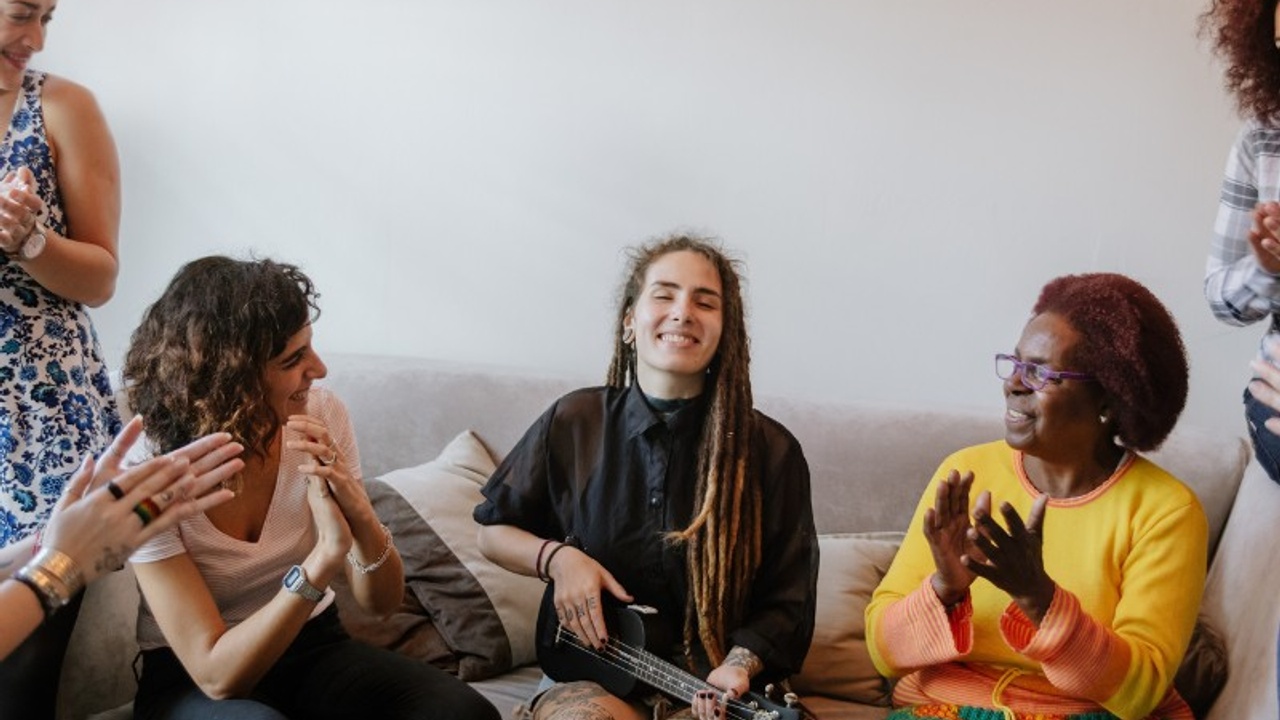9 Quick Communication Tips

This blog is brought to you from a life---mixed with eccentric relatives, fun and laughs, bumps and bruises, and added to my degree in Behavior Science (Psychology). Hope you enjoy it.
Our friends and family know us RIGHT, maybe or maybe not. Sometimes we think we're sharing our thoughts and preferences but COMMUNICATION is tricky business.
Many times in the midst of an animated or heated discussion we hear or say....“I thought you meant….”. It happens all the time.
Are you clear in your communications or maybe just think so? Hmm...
Here are 9 quick tips to grow your communication skills and hopefully improve all of your relationships. We'll focus on the upcoming holiday communication, remember these can easily translate to your personal and professional life.
1. It's been a long year and you haven’t seen these people/relatives for months or years and you don’t remember what they like or do for a living. Treat them like you might approach a conversation with a stranger, ask about something upbeat and general like their dog or baby to see how open they are to talking more. Be courageous.
2. Sometimes, we are listening but we don't understand what the other person is saying. On occasion, I say to my sweetheart, “I have no idea what you mean”. If the listener is looking at you with a question or frustration on their face, that’s your first clue, it’s time to rethink the words you're using and check in with your body language and tone. First, let go of the emotion and/or expectation for the other to "get it". Next, give it another attempt only this time rephrase it in a new way that might fit better with their vocabulary or references from their life. Speak from their frame of reference...Think of them.
3. One of our most important needs as a human is to be seen, heard, and understood..to feel important. Give the person the kind of attention you do when you first meet a fascinating new friend. In other words, listen so as to hear and value that person. Be engaged.
4. Your nonverbal communication is VITAL to be heard. You are saying a lot without using words. Be intentional to communicate an open attitude: good eye contact, a relaxed open stance, a smile, and a friendly tone to your voice. Notice theirs too, if you see tension or closed body language like crossed arms and lack of eye contact, maybe it’s time to ask if they have something they want to say or lighten the conversation and give that topic a break for now. Even on the phone, people can "hear" your smile. Watch your body and tone.

5. Be very careful to listen for the end of their stated thoughts. Listen for the pause and their eyes looking to you for a response. This is a big challenge if you have a bad habit of interrupting, so pay attention and you'll be rewarded with a more open dialogue, who knows they might have some very wise things to share! it. The phone can be tricky, my friend frequently uses a pause in the middle of sentences, in person it’s not a problem but on the phone, it can be challenging to figure out, so I have to remember and listen carefully. Avoid interrupting.
6. When we share conversation and ask questions we are using our language and our filters. We are using the words we have collected and put into our word bank over our lifetime. Word banks come from our experiences, our family heritage, plus our time in history and the location of raising. In addition, some words hold an emotional charge for others. I was talking with a client and said the word “bored”. Wow, her face became lit with fear. She shared a very negative experience growing up when she said the word "bored" around her mom. We can not predict their history, but we can be understanding, flexible, and aware of THEIR word bank to integrate it into your conversation. Your understanding will create being understood so much better. Be aware of their word bank.
7. Think about what you want to say. This is important for two reasons. One so you can avoid excessive talking that moves in the chatter zone. Or the opposite, if you are a person of very few words, you'll likely want to be more expressive in order to be understood and create a connection. Think about what you want to say so you can find more descriptions or a story to highlight your point. People love a good story.
8. Do your best to accept people right where they are on their path. There are some very hot topics in our society. If the person you're visiting with is convinced of their politics, religion, or investment ideas, even though it may make your skin crawl, let yourself be ok. Let them have their opinions. You might even be able to say “I understand where you are coming from”. It doesn't mean you agree or are letting go of your passionate beliefs. Be curious and listen openly, you might just learn something you've not considered before. Respect them.
9. Our society relies so heavily on text and email but communication experts agree it's some of the worst ways to have clear communication. In-person is the best. If that's not feasible, try video chat (Facetime, Hangouts, Zoom) it’s a lot of fun and gets you closer to the best platform which is face-to-face. Remember those rectangle things we all carry (cell) is a phone, a phone chat is exceedingly better than text. Make your best choice.

We expect so much from friends, families, and co-workers in the area of communication, especially if we were raised with them or we see them daily. Expectation IS a minefield leading to misunderstandings and even hurt feelings.
I hope you'll consider integrating these ideas to help communication in your personal and professional life.
Let’s hope all the communication surprises are like the one I had last night when chatting with my son about dinner ideas. I suggested homemade lasagna, cheesy garlic bread, and salad. He said, "my vote is for hot dogs and whiskey!". You just never know what someone is going to say.
All the best,
~Leann

